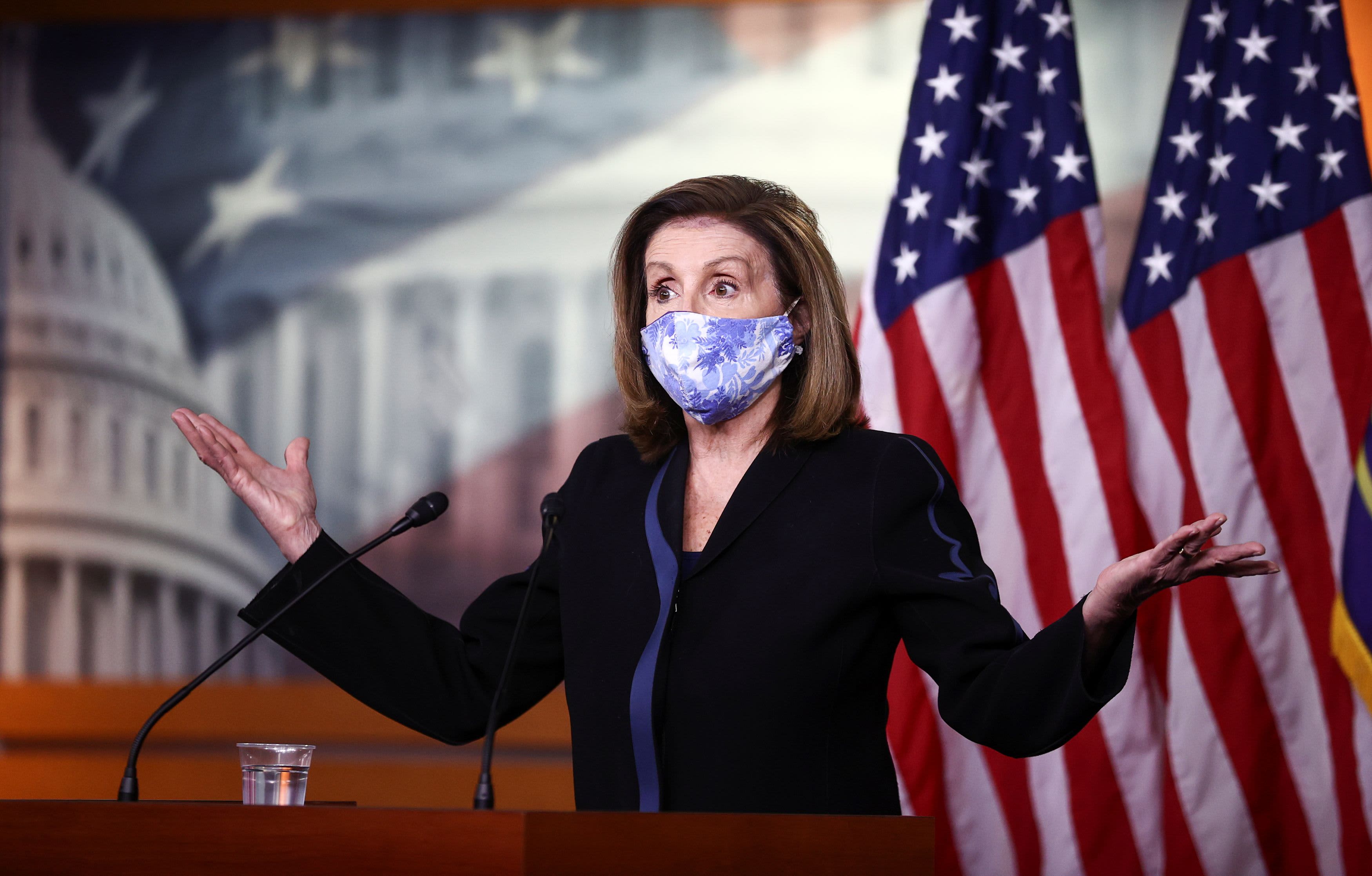
U.S. Speaker of the House of Representatives Nancy Pelosi (D-CA) responds to questions as she speaks to reporters about the coronavirus disease (COVID-19) pandemic and the 2020 U.S. presidential election results during her weekly news conference at the U.S. Capitol in Washington, U.S., November 13, 2020.
Hannah McKay | Reuters
House Speaker Nancy Pelosi will enter January with a narrower Democratic majority, but she contended Friday that fewer seats will not force her to change her strategy.
“No, not at all,” she told reporters when asked if her party’s expected loss of at least six House districts in the 2020 election will force her to compromise more. “We have a president of the United States.”
Pelosi insisted “our leverage and power is greatly enhanced” by the victory of President-elect Joe Biden, who will choose whether to sign bills into law. Two likely Senate runoffs in Georgia in January will decide whether Senate Majority Leader Mitch McConnell, R-Ky., and the GOP keep control of the upper chamber.
Congressional leaders’ refusal to cede ground has manifested most clearly in months of failure to send Americans more aid during the coronavirus pandemic. Despite House Democrats taking a hit and Republicans losing at least one Senate seat, the dynamic looks unlikely to change now.
Biden, who spent more than three decades in the Senate, has vowed to bring back a level of cooperation between the parties unseen in years.
Pelosi and McConnell said this week that they would not yield from their preelection positions on pandemic aid. House Democrats most recently approved a $2.2 trillion stimulus package — opposed by more than a dozen centrist members who had a mixed record in competitive 2020 elections.
Senate Republicans most recently proposed a $500 billion plan, which Democrats blocked.
Both leaders have called for a relief package before the end of the year. After a Thursday call among Pelosi, Biden and Senate Minority Leader Chuck Schumer, D-N.Y., the Democratic leaders called for a bipartisan relief plan during the lame duck session before the new Congress and president-elect take office in January.
The push for new aid follows yet another daily record of coronavirus infections, which on Thursday topped 150,000 in the U.S. for the first time. The raging outbreak has already caused states to tighten public health restrictions at a time when more than 20 million Americans are receiving some form of unemployment assistance.
The parties have another massive task on their plates during the current session. Congress has to pass a government spending bill by Dec. 11 to avoid a shutdown.
Pelosi said Friday she is optimistic lawmakers can pass a comprehensive bipartisan spending bill. Failure to strike an agreement before the deadline could mean Congress approves another stopgap measure, as it did earlier this year.
Trump’s willingness to govern has become an open question during the final two months of his tenure. He has spent the days since the Nov. 3 election raging about the results and alleging unfounded fraud in states that decided the race between him and Biden.




